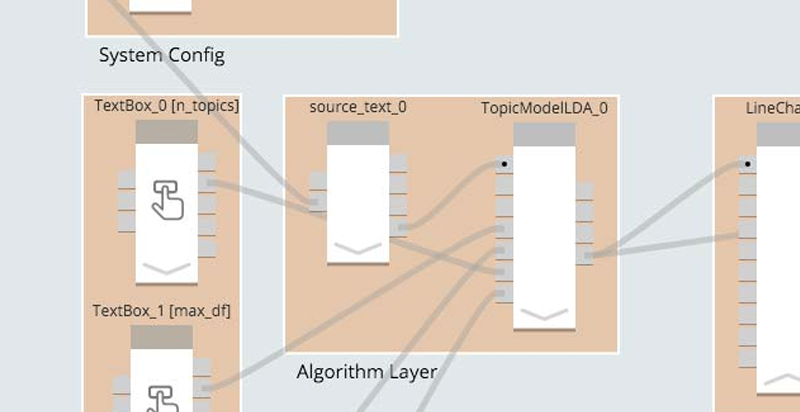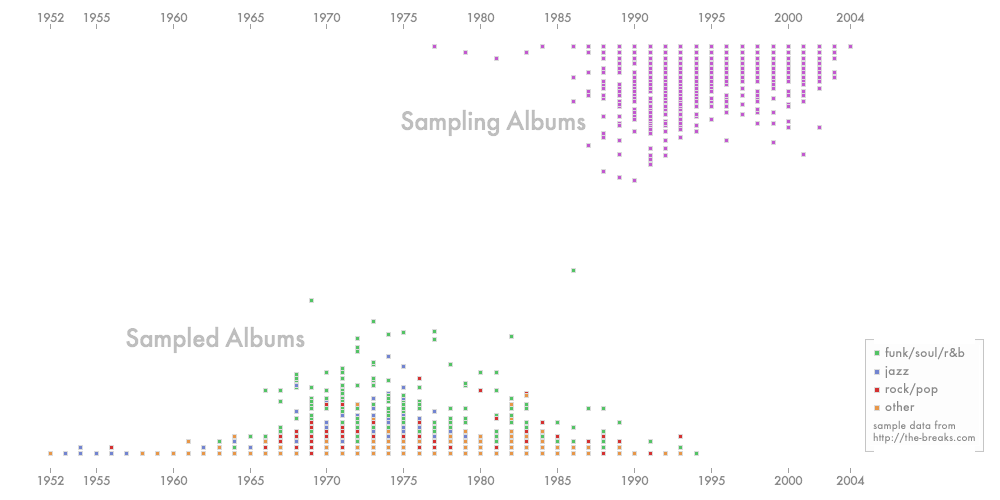Bloor Group CEO Eric Kavanagh chatted with David King, CEO and founder of Exaptive recently. Their discussion looked at the ways in which service-oriented architecture (SOA) has and has not fulfilled it's promise, especially as it applies to working with data. Take a listen or read the transcript.
Read More »Blog
Ethical Data Standards to Drive Society Forward
I am constantly amazed by the energy and momentum around data science. Only a few years ago, I would be met with a blank stare when I told someone I planned on going to grad school for machine learning. Today, there is no need for my “it's like computer science, linear algebra, and statistics had a combined love child” analogy as most people instantly respond with “Oh, like AI!”
Read More »Owning the full-stack: A homesteading analogy on software, innovation, and freedom
Have you ever met a homesteader who owns a mansion? Me either. My neighbor, Bill (80), is a homesteader who tries to be as self sufficient as possible. From what I can see, it’s an immensely rewarding and humble existence. Life-satisfaction oozes out of his every pore and, eventually, even enduring the hardships must have become rewarding to him.
Read More »Epiphanies on Abstraction, Modularity, and Being Combinatorial
Six months ago I didn't understand the concept of abstraction. Now it comes up almost daily. It’s foundational to my thinking on everything from software to entrepreneurship. I can’t believe how simple it seems. When I finally grokked abstraction, it felt like my first taste of basic economics. Given a new framework, something that had always been there, intuited but blurry, came into focus.
Read More »How a Data Scientist Built a Web-Based Data Application
I’m an algorithms guy. I love exploring data sets, building cool models, and finding interesting patterns that are hidden in that data. Once I have a model, then of course I want a great interactive, visual way to communicate it to anyone that will listen. When it comes to interactive visuals there is nothing better than JavaScript’s D3. It’s smooth and beautiful.
Read More »The Data Scientific Method
The Oxford English Dictionary defines the scientific method as "a method or procedure that has characterized natural science since the 17th century, consisting in systematic observation, measurement, and experiment, and the formulation, testing, and modification of hypotheses." With more scientists today than ever, the scientific method is alive and well, and generating more data than ever. This explosion of data has brought about the field of data science and an associated plethora of analytics tools. Controversially, some have claimed, such as in this Wired magazine article, that data science is so powerful that it has made the scientific method obsolete. Google's founding philosophy is that “we don't know why this page is better than that one. If the statistics of incoming links say it is, that's good enough.” The implication is that with enough data, people will no longer need to know why something happens, it just does, and that’s good enough. Is it, really?
Read More »I think I was 10 years old when my dad brought home our first microwave oven. It was an imposing black box that weighed a ton and had scary warning labels that mentioned radiation. The only time I had ever heard mention of radiation before was in regard to the atom bomb. We felt like we were supposed to run for cover whenever we turned it on, but, like everyone else I knew who had one, we did just the opposite. We huddled around it. We brought our noses right up to the translucent window, and watched, mesmerized in wonder, as the food inside got zapped by mysterious, limitless, invisible energy. When the timer beeped, and the door opened to reveal a steaming bowl of soup that had been cold only a minute ago, it seemed like a miracle. I remember those early days with the microwave vividly – experimenting with eggs, and chocolate syrup, and the off-limits gold-rimmed fine china that would send off an awe-inspiring barrage of orange sparks after just 15 seconds. Just 15 seconds! 15! I think that was the most important thing of all about the microwave oven – not what it did to my food, but what it did to my sense of time.
Read More »Recent Posts
Posts by Author
- AIBS BioScience Talks (1)
- Alanna Riederer (1)
- Austin Schwinn (2)
- Clive Higgins (3)
- Dave King (7)
- Derek Grape (2)
- Dr. Alicia Knoedler (2)
- Frank D. Evans (4)
- Jeff Johnston (1)
- Jill Macchiaverna (9)
- Josh Southerland (1)
- Ken Goulding (1)
- Luke Tucker (3)
- Matt Coatney (3)
- Matthew Schroyer (4)
- Mike Perez (10)
- Sandeep Sikka (1)
- Shannan Callies (2)
- Stephen Arra (1)
- Terri Gilbert (2)
- Tom Lambert (2)
Posts by Tag
- Innovation (19)
- collaboration (19)
- team building (17)
- Data Applications (15)
- Data Science (14)
- collaborate (13)
- new idea (13)
- Data Visualization (12)
- cognitive city (11)
- cognitive network (11)
- teambuilding (11)
- discovery (10)
- thought leadership (10)
- Exaptation (9)
- research (9)
- technology (8)
- Data Exploration (7)
- Platforms (7)
- Data + Creativity (6)
- Text Analysis (6)
- open data (6)
- software (6)
- tech (6)
- Big Data (5)
- Network Analysis (5)
- conference (5)
- ethnographics (5)
- human-computer interaction (5)
- innovation software (5)
- network diagrams (5)
- Communicating About Data (4)
- Dataflow Programming (4)
- Design (4)
- HCI (4)
- Platform (4)
- Rapid Application Development (4)
- artifact (4)
- co-production (4)
- innovation management software (4)
- startup (4)
- use case (4)
- women in tech (4)
- attribute (3)
- entrepreneurship (3)
- ethnographic (3)
- ethnography (3)
- Abstraction (2)
- Data-driven Decision Making (2)
- Machine Learning (2)
- PubMed® Explorer (2)
- User Interface (2)
- algorithm (2)
- entrepreneur (2)
- 3d Visualization (1)
- Financial (1)
- Netflix (1)
- building models (1)
- hackathon (1)
- hairballs (1)
- interdisciplinary (1)
- knowledge graph (1)






